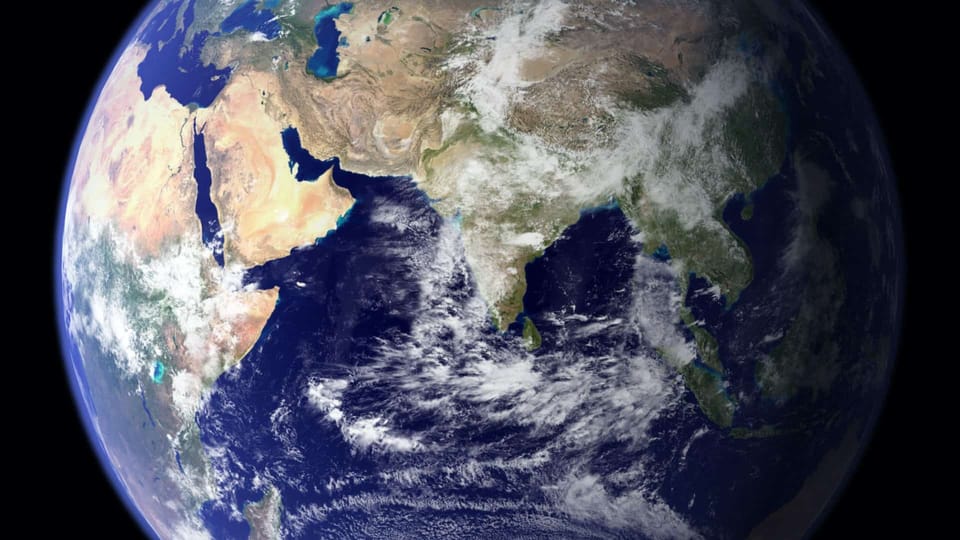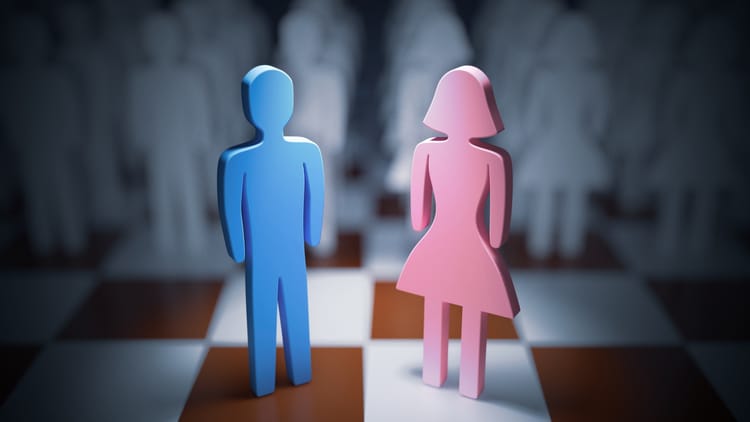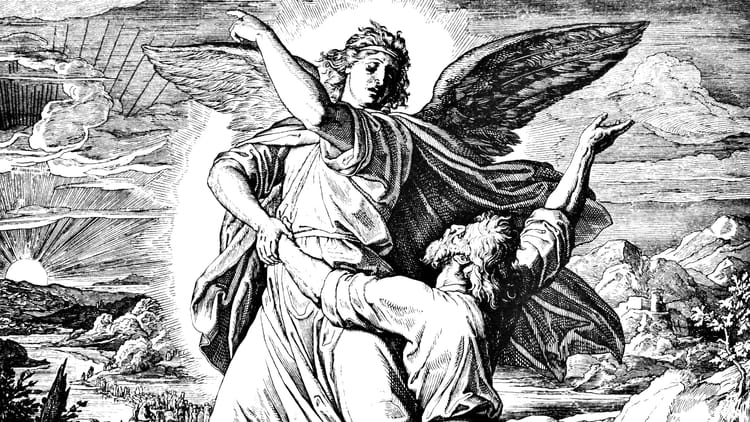Why Is the World Glorious but Broken? (Genesis 1-11)


Big Idea: The world is glorious because God made it, but it’s also broken because we’ve wrecked it with sin.
We’re about to attempt the impossible.
First: some of us are trying to read the Bible in 40 days. That sounds crazy. That takes about an hour a day if you’re a fast reader, or 70 hours and 40 minutes if you want to use an audio Bible. That sounds like a lot, but that’s about the same amount of time that the average Netflix user watches Netflix per day. So consider giving up Netflix or social media for a few weeks and join us.
But that’s not the only almost-impossible thing we’re going to do. We’re also going to preach the entire Bible over seven weeks. We believe that the Bible is a unified story that includes you. It’s the story of God, the world, and God’s answer to the human predicament. If we are to figure out who we are and what our role is in this world, we need to understand this story.
So let’s jump right in today to the start of the story and ask an important question: Why is the world glorious but broken?
Glorious World
We live in a stunningly glorious world, but it hasn’t always been this way.
Genesis 1 begins with a world of disorder and darkness. Genesis 1:1 begins:
In the beginning, God created the heavens and the earth. The earth was without form and void, and darkness was over the face of the deep. And the Spirit of God was hovering over the face of the waters.
There’s so much here in these two verses.
First: in one sentence, Scripture says that God created the cosmos. Everything we see came from God. God created everything there is in all of creation:
- our galaxy, which according to Stephen Hawking is is an average-sized spiral galaxy that looks to other galaxies like a swirl in a pastry roll and that it is over 100,000 light-years across
- the hundred thousand million galaxies of the universe
God created all of this: every speck, every molecule. Right away, Scripture contradicts the story that the world came from natural processes involving only natural laws and the story that the material world is all that there is, that only matter and energy exist. This world is full of meaning because God is behind it all.
Okay. God created everything. But in the beginning, according to the second sentence of the Bible, the world has two characteristics: disorder and darkness. You could call this total chaos. God created everything, but in the beginning, the world began as uninhabitable, a place where we could not survive.
But then God gets to work. In Genesis 1 and 2, Scripture says that God brought order and beauty and goodness into the world so that life can flourish. There are so many details we could look at in chapters 1 and 2, but let’s highlight just three.
Everything begins with God.
The main point we’re supposed to get from Genesis 1 and 2 is that everything begins with God. I love how Derek Kidner puts it:
It is no accident that God is the subject of the first sentence of the Bible, for this word dominates the whole chapter and catches the eye at every point of the page: it is used some thirty-five times in as many verses of the story. The passage, indeed the Book, is about him first of all; to read it with any other primary interest (which is all too possible) is to misread it.
Everything revolves around God. We tend to get lost in all the details of the days and miss the main point: God, in his goodness, made all of this. It’s a gift. All of creation reflects and reveals the goodness of God.
It’s all created as a good place for us to live.
Genesis 1 creates six days in two pairs. In the first three days, God creates environments and habitats, and in days 4 to 6 he fills them. Three days of forming, and then three days of filling.
- On day one, he creates day and night. On day four, he fills with heavenly lights on day four.
- On day two, he creates the sky. On day five, he fills it with birds.
- On day three, he creates the land and sea (with vegetation). On day six, he fills the land and sea with land creatures (including human beings) who live on that land and feed on that vegetation.
Genesis 2:1 summarizes all of this: “Thus the heavens and the earth were finished, and all the host of them.”
A number of times in Genesis 1, God looks at what he’s made and pronounces it “good.” At the end of creating everything we read, “And God saw everything that he had made, and behold, it was very good” (Genesis 1:31). “The harmony and perfection of the completed heavens and earth express more adequately the character of their creator than any of the separate components can” (Gordon Wenham). As a totality, this world really is a glorious place and reveals God’s glory and goodness.
Scientists have wondered why this universe appears to be fine-tuned for the existence of life. Life requires physical constants, laws, and properties that fall within certain narrow ranges.
There are two possible answers. One: it had to happen somewhere, and the universe is so vast that we just happened to get lucky. But the Bible says there’s a better explanation: God made this world just right to sustain human life. That’s why we’re here. God created a world that’s good and just right for us to live. He creates a world where life can flourish.
You have purpose.
We are creatures. According to Genesis, humanity has a lot in common with other creatures. We are made on the sixth day just as they were, and we were also formed from the ground (2:19). So at first glance, it looks like we’re not that different.
But then Genesis begins to highlight some very significant differences. When God creates creatures in verse 24, he says, “Let the earth bring forth living creatures according to their kinds…” When God creates humanity, he says, “Let us make man in our image, after our likeness” (Genesis 1:26).
We’re like other creatures in some way, but we’re also different. God creates humanity with a special role in the world: as his representatives to rule the world on his behalf. He made us to harness this world’s potential, to care for it, and to make this world a place where we can multiply and furnish. In chapter 2, we even read that he gives humanity a garden from which they can begin their task of building the world just as he told them.
We live in this glorious world, a world with just the right environment to support life. And we live in a world of love and beauty because these qualities were built into the world as a reflection of God’s character. Look around you. Every time you eat something that brings you pleasure, every time you see or hear anything that’s beautiful, and every time you feel the warmth of love, you’re getting a glimpse of the glory of God.
That’s why your life matters. Your value comes from your creation as part of the human race. God made us, and we are precious in his sight. And he made this world as a reflection of his glory and love. No matter who you are, no matter what you’ve been going through, your life matters.
That’s why the world is glorious. It reflects God’s glory. The world is glorious because it reflects the glory of its Creator and his love for us.
Broken World
But we have to wrestle with another question: why is the world not just glorious but broken? Why is COVID-19 sweeping the world? Why are locusts destroying East African crops and creating an unprecedented food crisis? It’s why people are dying of cancer and other devastating diseases.
Why is this world so broken?
In Genesis 2:8-9 we read:
And the LORD God planted a garden in Eden, in the east, and there he put the man whom he had formed. And out of the ground the LORD God made to spring up every tree that is pleasant to the sight and good for food. The tree of life was in the midst of the garden, and the tree of the knowledge of good and evil. (Genesis 2:8-9)
Two trees. In verses 16 and 17, God says, “And the LORD God commanded the man, saying, “You may surely eat of every tree of the garden, but of the tree of the knowledge of good and evil you shall not eat, for in the day that you eat of it you shall surely die.”
What is the deal with these trees? God gave humanity the ability to choose between two paths:
One path involved eating of all the trees of the garden, including the tree of life, except for one. The tree of life represents God’s presence and life. As long as humanity eats from that tree, they stay connected to the source of life itself. Humans don’t automatically live forever, but when they stay connected to God as the source of life they can keep on living.
But there was another path: eating from the tree of the knowledge of good and evil. God told them not to do this, but we read in the next chapter, “the tree was good for food, and that it was a delight to the eyes, and that the tree was to be desired to make one wise” (Genesis 3:6). It looked amazing. If they ate from this tree, they would cease to trust God’s determination of what is good and evil. Instead, they would seize autonomy and define good and evil for themselves.
One path involved trust and dependence upon God, and submission to his command. The other path involved doing what looks good but is contrary to God’s command, and leads to death.
And that’s what changed this good and glorious world. In a moment, the first humans refuse to trust God. They seize autonomy for themselves, and the whole story spirals downward. They’re banished from the tree of life (3:22-23). God informs them that every aspect of their life together will be affected by grief and pain as a result of their rebellion. Ultimately, they will die.
The next chapters trace the effects of this decision:
- The first two children are born, and one (Cain) murders the other (4:1-16).
- A few generations later, a man named Lamech is born who brags about being more violent than Cain, and he takes more than one wife, breaking from God’s design for marriage (4:23-24).
- The world becomes so full of sin that God decides to start again with a man named Noah, a new Adam, but as soon as Noah gets his fresh start he blows it, also in a garden (9:20-29), and things are no better.
- Eventually, people invent bricks, and they use this new technology to build a tower that will glorify themselves and bring achieve glory apart from God (chapter 11). It’s the garden rebellion all over again, choosing what looks good to them rather than following what God says. God thwarts that plan too.
God keeps giving humanity the chance to do the right thing, and humanity keeps ruining things instead. As the Bible Project says: “These stories are claiming that we live in a good world gone bad. We’ve all chosen to define good and evil for ourselves, and so have contributed to a world of broken relationships, conflict, violence, and ultimately death.”
That’s why our attempts to improve ourselves or overcome our problems always fall short. That’s also why our attempts to solve the world’s problems will never go far enough. For sure, work on your marriage. Look for solutions to poverty and injustice. But realize at the same time that the problem is far too serious for our efforts to ever make a lasting difference. We need a bigger solution.
Why is the world glorious but broken? The world is glorious because God made it, but it’s also broken because we’ve wrecked it with sin.
Hope
But there’s hope.
In the middle of their rebellion, God tells the serpent who deceives Adam and Eve:
I will put enmity between you and the woman,
and between your offspring and her offspring;
he shall bruise your head,
and you shall bruise his heel.
(Genesis 3:15)
One day a descendent of Eve will arrive. He will batter the head of the serpent — he will crush its head, but the serpent will strike back. The descendent of Eve would win as a wounded victor, defeating evil at its source.
Who is this serpent? The New Testament unmasks him as Satan (Revelation 12:9). And who crushes Satan’s head? The wounded victor, Jesus himself, who gives his life to trump over evil and death, and who is determined to bless and rescue this world.
Every week we want to ask two questions about this part of the story: what does it teach us about God, and what does it teach us about humanity?
Here’s what this part of the story teaches us about God: he is a good God who created a glorious world, has conferred on us dignity and value, and refuses to allow sin to get the last word, even though we only deserve his judgment.
Here’s what this part of the story teaches us about humanity: we are made in the image of God, and yet we have rebelled against his will and we are in need of a Savior.
That’s the beginning of the story: a glorious world, broken because we’ve wrecked it with sin — and yet there’s hope because of the wounded victor named Jesus.
Lord, what a start to the story. Thank you for this marvelous world. Thank you for all the goodness that reflects your goodness and glory. Thank you for the beauty we witness, the food we get to taste, the love that fills us. Thank you that we matter to you.
But Lord, we also see evidence of brokenness all around us. Forgive us for the sin that has ruined your good world. Thank you for the wounded victor who comes to bless and rescue us and set this world right.
We still face a choice between trusting you and choosing our own way, which looks good and desirable but leads to death. We’ve been banned from the tree of life, and we want back. Thank you for Revelation 2:7, which says, “To the one who conquers I will grant to eat of the tree of life, which is in the paradise of God.” Thank you for Revelation 22, which describes “on either side of the river, the tree of life with its twelve kinds of fruit, yielding its fruit each month. The leaves of the tree were for the healing of the nations.”
We can’t wait to eat from the tree of life again. Thank you for Jesus, who has opened access for us to eat of that tree once again. May we all trust him instead of choosing our own way. In Jesus’ name, Amen.





